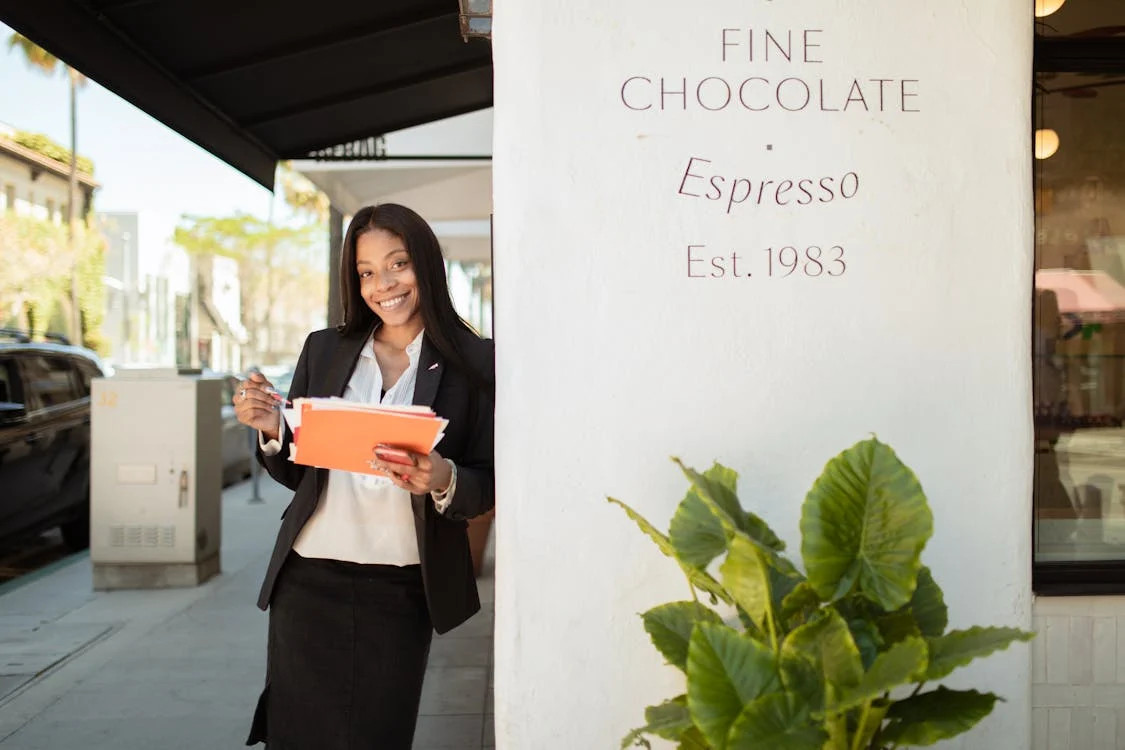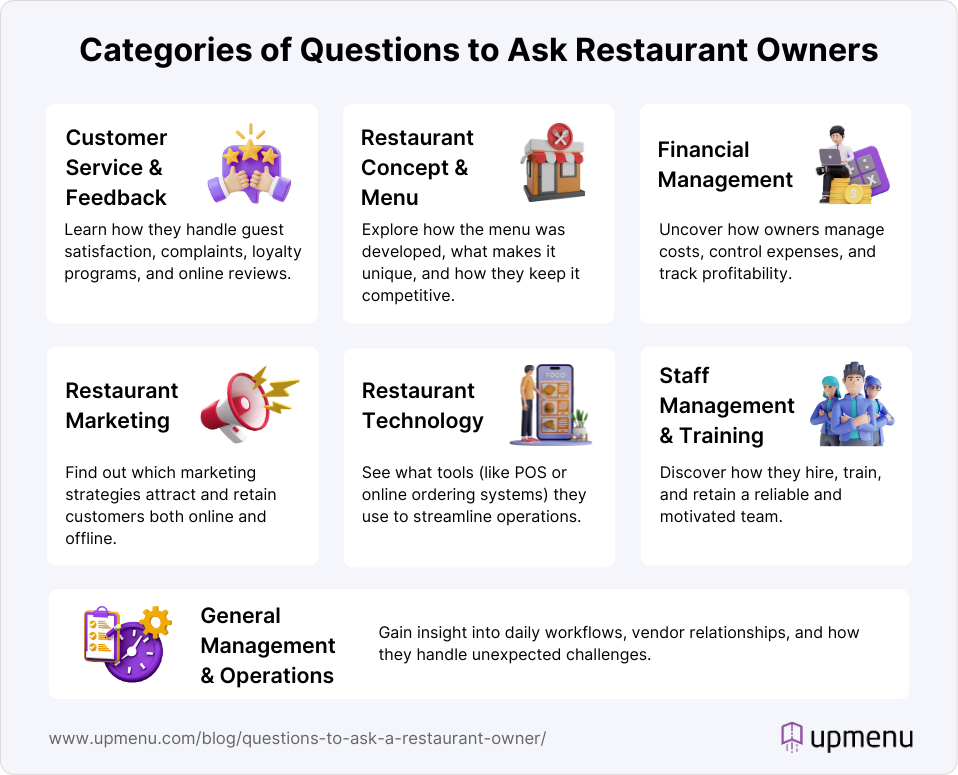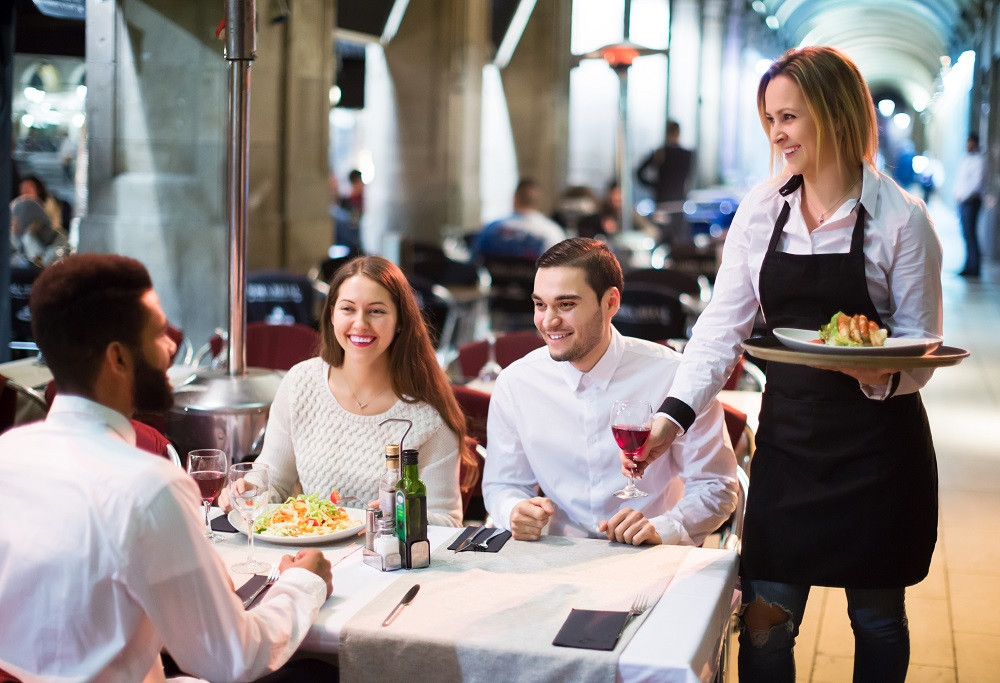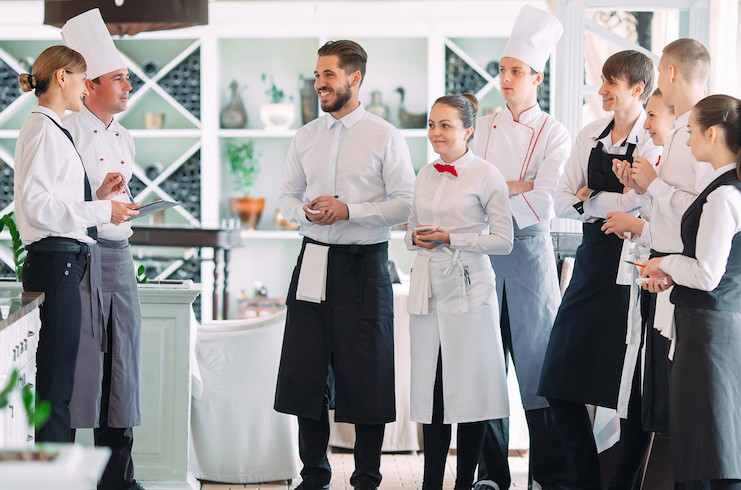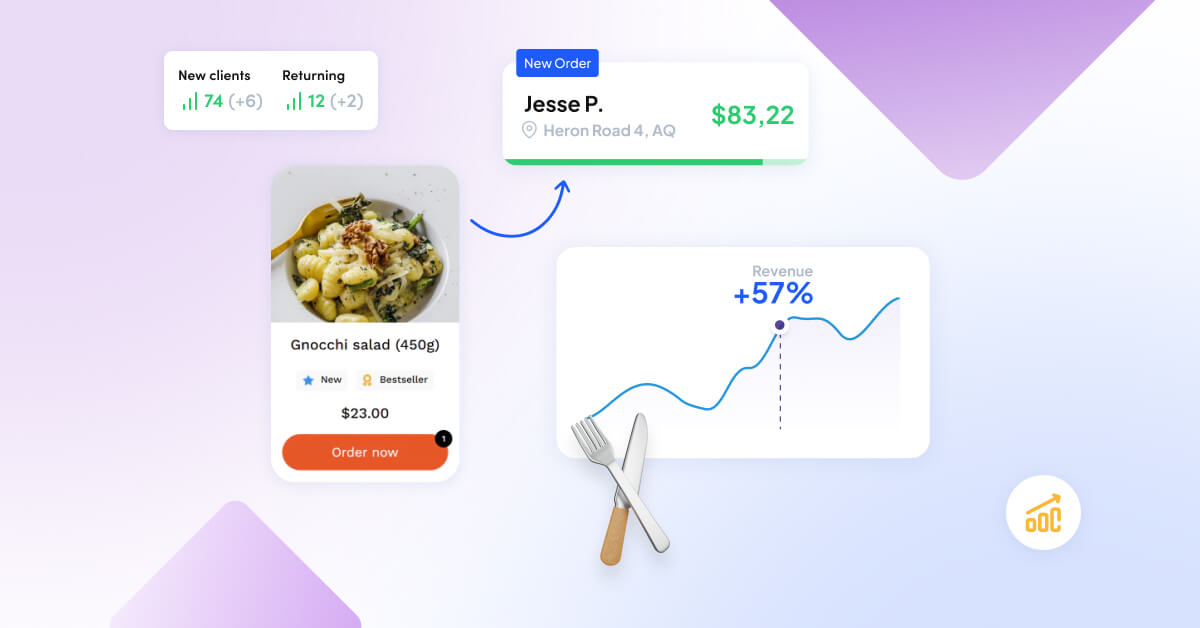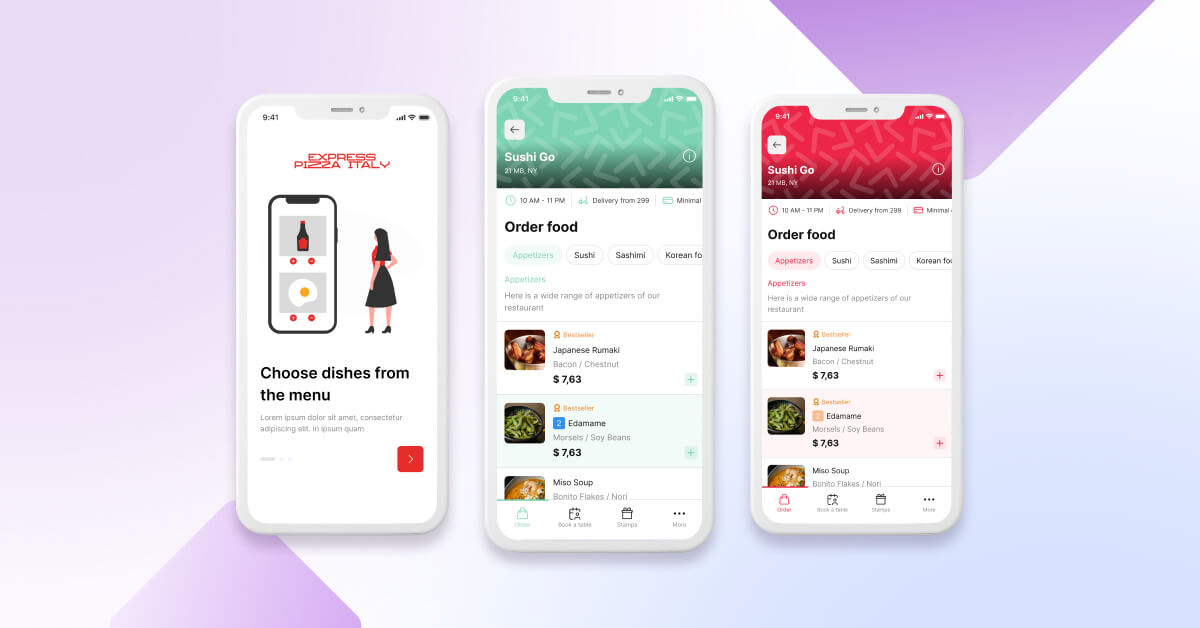Running a restaurant is tough. Nearly 60% of new restaurants close within their first year, and almost 80% don’t make it past five years. That is why I believe there is no better way to prepare than by learning directly from those who have done it.
By asking the right questions, you can avoid common mistakes, uncover best practices, and gain insights that no blog post or course can fully provide.
In this guide, I share more than 25 essential questions to ask a restaurant owner, along with the purpose of each and example answers from real experiences to make the interview process easier.
Key Takeaways
- Learn from Real Experience: Asking restaurant owners about their background, motivation, and lessons learned helps you understand what drives success and avoid costly mistakes in your own restaurant journey.
- Improve Customer Service: Learn how owners boost guest satisfaction, handle restaurant complaints, and manage loyalty programs. Since around 94% of diners say that online reviews play a major role in deciding where to eat, understanding how owners manage both in-person and online feedback is key to building a strong reputation.
- Build and Keep a Strong Team: Questions about hiring, restaurant training, and retention help you discover proven tactics for managing restaurant staff effectively.
- Optimize Daily Operations and Financial Health: Exploring questions about inventory, food waste, and cost control uncovers how restaurant owners streamline workflows and increase restaurant profit margins. Most restaurants operate with an average profit margin of just 2% to 6%, so finding ways to improve efficiency is essential.
- Leverage the Right Technology: Understanding which tools owners use, from POS systems to an online ordering system, helps you identify restaurant technology that boosts efficiency and enhances the guest experience. For example, according to Deloitte, online ordering increased average check sizes by 26% for quick service restaurants and 13% for fast casual spots.
- Apply What You Learn: Use these questions not just to gather advice, but to shape your own restaurant strategy, from concept development to customer experience.
What Questions to Ask Restaurant Owners?
Below, I’ll walk you through the most important questions to ask restaurant owners, whether you’re preparing for an interview, exploring a potential restaurant partnership, or thinking of opening a restaurant.
To make it easier, I’ve grouped the questions into key categories such as general questions, customer service and feedback, financial management, and restaurant technology, to cover all areas of restaurant operations.
In each category, you’ll find sample questions, reasons why they matter, and example answers based on real-life experiences.
General Questions
1. Can you describe your experience in the food and beverage industry?
Reason to ask: Understanding the restaurant owner’s background provides valuable insights into their expertise in the industry, their understanding of restaurant operations, and the challenges they’ve overcome.
“I have over 20 years of experience in the food and beverage industry, starting as a line cook and working my way up to executive chef before opening a restaurant.
Throughout my career, I’ve worked in various types of establishments, from fast-casual to fine dining, which has given me a broad perspective on the industry.
My background has equipped me with a deep understanding of culinary arts, customer service, and restaurant management.”
2. What inspired you to start your own restaurant business?
Reason to ask: Understanding why restaurant owners decided to start their own business can shed light on their passion and vision.
“I’ve always loved cooking and creating unique dining experiences. After years in different kitchens, I wanted a place to share my vision with full control over the menu and atmosphere, which inspired me to start my own restaurant.”
3. What has been the most rewarding part of owning a successful restaurant?
Reason to ask: This question shows what the owner finds most fulfilling, whether making customers happy, achieving financial success, or personal growth, and it highlights their core values and achievements.
“The best part of owning a restaurant is seeing our guests enjoy their meals and hearing their positive feedback. It’s incredibly fulfilling to know we’re creating memorable experiences.”
“We run a thorough training program with onboarding, workshops, and coaching. New hires learn our menu, service standards, and restaurant customer service philosophy, while ongoing sessions keep staff updated and focused on excellence.”
5. How do you handle customer complaints or negative feedback?
Reason to ask: Handling complaints well can turn unhappy guests into loyal ones. This question shows how the owner manages issues, responds to restaurant complaints, and improves service quality.
“When we receive a complaint, we listen, apologize, and resolve it quickly with a replacement, discount, or other solution. We also use restaurant feedback to improve our service and menu.”
6. How do you gather and use customer feedback to enhance customer satisfaction?
Reason to ask: Discover how the owner uses restaurant survey questions and other methods to collect and act on feedback.
“We monitor all reviews on restaurant review sites, whether positive or negative, and respond to each one. This helps us understand customer feedback, spot trends, and make improvements.”
7. What steps do you take to create a memorable guest experience?
Reason to ask: Creating a memorable dining experience is key to customer retention and positive word-of-mouth. This question reveals the owner’s strategies for making each guest’s visit special.
“We focus on ambiance, quality food, and attentive service. Personalized touches like remembering favorites, offering desserts on special occasions, and accommodating diets help create memorable experiences.”
Restaurant Concept and Menu
8. Can you describe the overall concept of your restaurant?
Reason to ask: Understanding a restaurant’s concept reveals the owner’s vision, the unique elements that attract customers, and the restaurant’s target audience.
“Our restaurant is a farm-to-table concept that focuses on seasonal, locally sourced ingredients. We aim to create a cozy, rustic atmosphere where guests can enjoy fresh, high-quality meals.
Our menu changes with the seasons, and we strive to provide a unique dining experience that highlights the flavors of our region. We also host community events like farmers’ markets and cooking classes to engage with our customers beyond just dining.”
9. What type of cuisine do you specialize in, and what inspired this choice?
Reason to ask: Knowing the cuisine type and inspiration reveals the owner’s culinary focus, passion, and what makes the restaurant stand out.
“We specialize in Mediterranean cuisine inspired by my travels in Greece, Italy, and Spain. Our menu highlights fresh flavors, healthy ingredients, and traditional cooking techniques.”
10. How do you develop and update your menu items to align with customer preferences?
Reason to ask: Regular menu updates keep a restaurant relevant and exciting. This question shows how the owner follows customer preferences and restaurant trends to meet evolving tastes.
“We use menu engineering to shape our menu while keeping up with food trends and customer preferences, like adding plant-based or dietary-specific dishes. Regular tastings and surveys help us refine our offerings.”
11. What factors influence your menu pricing?
Reason to ask: A menu pricing strategy affects both profitability and customer perception. This question shows how owners balance cost, quality, and expectations to deliver value.
“Our menu pricing considers ingredient costs, preparation time, and market trends. We analyze food costs and adjust prices to stay profitable while offering value and staying competitive.”
12. How do you ensure consistent food quality?
Reason to ask: Consistent food quality is key to customer satisfaction and repeat visits. This question reveals the systems and standards owners use to deliver the same high-quality dishes every time.
“We ensure consistent food quality by sourcing fresh ingredients from trusted restaurant food suppliers and training staff to follow standardized recipes. Regular quality checks and taste tests help us maintain the same high standards in every dish.”
Financial Management
13. What financial metrics do you track most closely in your restaurant business?
Reason to ask: Tracking restaurant KPIs helps owners manage costs, monitor profitability, and make informed decisions. This question shows which metrics they prioritize, such as food costs, labor costs, and restaurant profit margin, to keep the business healthy.
“We track food costs, restaurant labor costs, and overall profit margin most closely. We also review sales by category, average check size, and overall restaurant revenue to measure performance and guide financial decisions.”
14. How do you manage your restaurant’s budget and cash flow?
Reason to ask: This question gives insight into how the owner handles their budget, restaurant cash flow, and any financing strategies to keep the business running smoothly.
“We start each year with a detailed restaurant budget that outlines expected expenses and revenue. We track income and spending closely each month to stay on target, and we keep a few restaurant financing options in place for unexpected costs.”
15. What strategies do you use to control food and labor costs?
Reason to ask: Food and labor are the most significant expenses in any restaurant. This question shows how the owner controls food and labor costs to improve efficiency and protect profit margins.
“To control food costs, we track inventory carefully, reduce food waste, and work with trusted suppliers to get fair pricing. On the labor side, we use restaurant scheduling software to match staffing with demand, which helps reduce costs and improve efficiency.”
Restaurant Marketing
16. What restaurant marketing strategies have been most effective for you?
Reason to ask: Marketing drives restaurant revenue and customer growth. This question reveals which restaurant marketing strategies owners find most effective, from social media and loyalty programs to online ordering and promotions.
“We’ve found that restaurant social media marketing is incredibly effective. We regularly post on Instagram and Facebook. We also collaborate with local influencers to reach a wider audience and draw in new customers.”
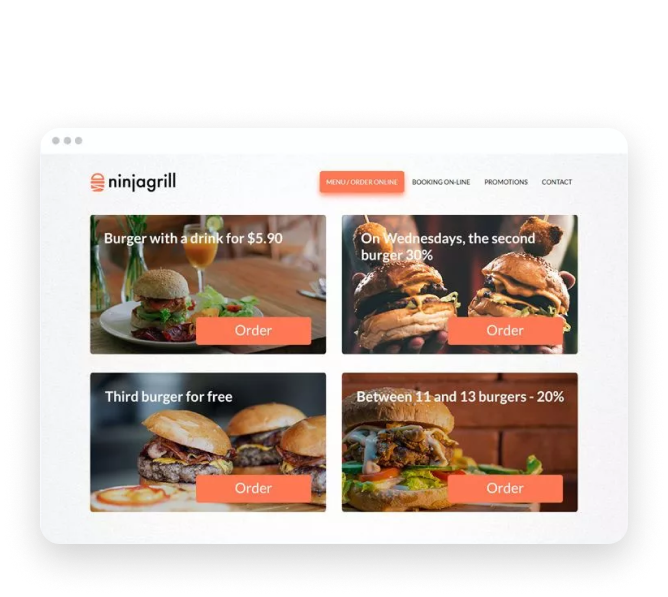
17. How do you leverage social media platforms to attract customers and improve service quality?
Reason to ask: Social media is a powerful tool for restaurant marketing and customer engagement. This question shows how owners use social media platforms to attract new customers, gather feedback, and improve service quality.
“We use Instagram and Facebook to showcase our dishes, share behind-the-scenes content, and promote events. Engaging with comments and messages helps us build community and gather feedback to improve service.”
Learn more about Facebook for restaurants and Instagram for restaurants.
18. What role do promotions and special events play in your marketing strategy?
Reason to ask: Restaurant promotions and special events can boost revenue and attract new customers. This question reveals how owners use them in their marketing strategy to drive sales, increase loyalty, and create memorable dining experiences.
“We get creative with restaurant promotions and events like cooking classes, wine tastings, and live music nights. Each team member can suggest ideas, and we decide together which ones to run.”
19. How do you build and maintain your restaurant brand?
Reason to ask: Effective restaurant branding builds recognition, trust, and customer loyalty. This question reveals how owners define their brand identity and maintain it across marketing, service, and the guest experience.
“We prioritize building and maintaining our restaurant branding. We keep a consistent visual identity across our logo, menu design, social media, and interior decor, and we make sure every customer interaction reflects our brand values of quality and hospitality.”
Restaurant Technology
20. What technology solutions have you implemented to improve operations?
Reason to ask: Technology plays a major role in streamlining restaurant operations and improving efficiency. This question reveals which solutions owners use, such as a POS system, online ordering, or kitchen management tools, to control costs and enhance the guest experience.
Restaurant owners using the UpMenu online ordering system report that after implementing a QR code menu, they see an average increase in online orders of 17%.
Asking this question about the implemented technology, you can uncover which tools truly make a difference in day-to-day operations and how technology shapes both efficiency and customer satisfaction.
“We use a QR code menu and tableside ordering to speed up service, plus an online ordering system for takeout and delivery. Our restaurant mobile app also lets customers reserve tables, place orders, and access loyalty rewards.”
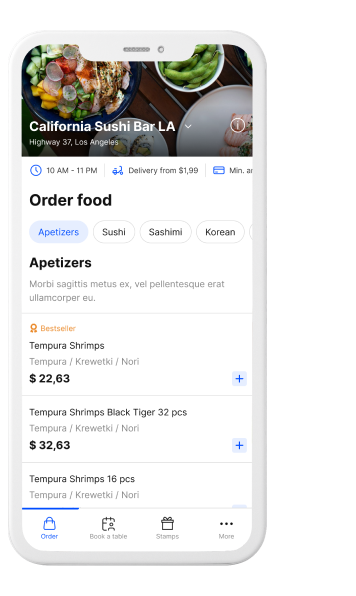
21. How do you manage online reservations and orders?
Reason to ask: Online reservations and orders are increasingly important for convenience and customer satisfaction. This question examines how the owner manages these aspects to provide a seamless experience for their guests.
“We focus heavily on our online ordering system and restaurant reservation system, both integrated with our restaurant mobile app and website. Customers can easily place takeout or delivery orders and make reservations online.
The system automatically updates our order queue and reservation schedule in real-time. Thanks to that, we never overbook, and all orders are processed efficiently.”
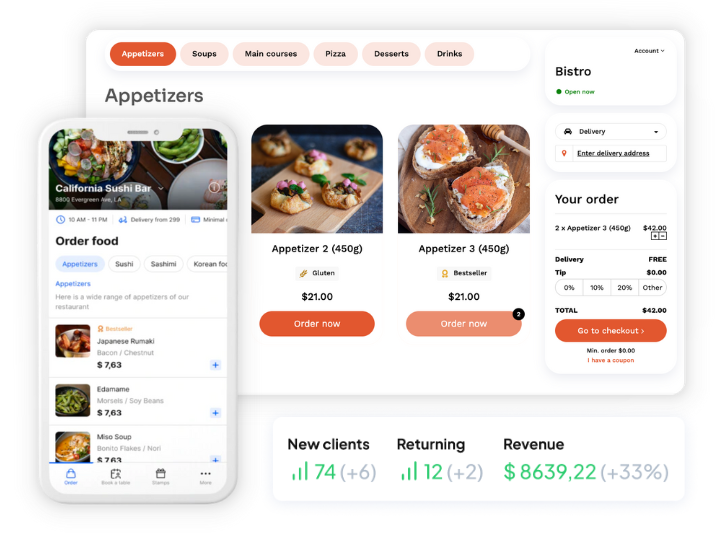
22. How has technology impacted your inventory management?
Reason to ask: Efficient restaurant inventory management directly affects food costs, waste reduction, and profitability. This question shows how the owner uses technology for accurate control, reflecting their focus on operational efficiency and cost management.
“We use an inventory management system to track stock levels in real time. It gives us detailed insights into usage, helps prevent overstocking, and allows us to reduce food waste.”
Staff Management and Training
23. What methods do you use to train new employees and ensure they understand your menu and service standards?
Reason to ask: Effective restaurant training ensures staff deliver consistent service and understand the menu thoroughly. This question reveals how owners onboard new employees, reinforce service standards, and maintain a high-quality guest experience.
“Training new employees is a priority for us. We start with onboarding that covers the menu, service standards, and our customer service philosophy, then provide hands-on training with mentorship and regular check-ins.”
24. How do you handle conflicts among team members in your restaurant?
Reason to ask: Team dynamics play a significant role in restaurant operations. This question reveals how owners handle conflicts among team members, highlighting their leadership, problem-solving skills, communication style, and ability to maintain a positive work environment.
“When conflicts come up, I address them quickly and fairly. I talk with each team member to hear their perspective, then bring everyone together to find a solution. If needed, we also provide training on restaurant communication and teamwork to avoid future issues.”
25. What strategies do you use to maintain high employee morale and reduce turnover in the hospitality industry?
Reason to ask: Employee morale directly affects service quality, productivity, and retention in the hospitality industry. This question reveals how owners motivate their staff, reduce turnover, and create a positive workplace culture.
“Keeping staff motivated is a big priority for us. We regularly recognize and reward outstanding performance, and we offer opportunities for career advancement within the restaurant. We also focus on creating a supportive work environment where team members feel valued.”
26. How do you evaluate the performance of your team and provide feedback?
Reason to ask: Evaluating team performance ensures accountability and continuous improvement in restaurant operations. This question shows how owners measure employee performance, provide constructive feedback, and support professional growth to keep team members motivated and effective.
“We conduct regular performance evaluations to assess our team’s strengths and areas for improvement. Each team member receives feedback on their performance, with specific examples and suggestions for development.
We also set clear goals and provide additional training when needed to help them reach their potential.”
General Management and Operations
27. What are the biggest challenges you face in managing your restaurant?
Reason to ask: Every restaurant faces unique challenges. This question reveals the biggest obstacles owners encounter and highlights their problem-solving skills and strategies for keeping the business running successfully.
“One of the biggest challenges we face is controlling food costs while maintaining quality. Staffing is another ongoing issue, especially during peak seasons. We address these challenges through careful planning, strong communication, and consistent staff training.”
28. How do you stay updated with industry trends and incorporate them into your restaurant business?
Reason to ask: Staying current with trends is essential for competitiveness. This question explores how the owner keeps up with changes in the restaurant industry and adapts their business accordingly.
“We stay updated by attending industry conferences, participating in workshops, and reading trade publications. When we find a trend that fits our brand, we discuss it with the team and find ways to integrate it into our menu or service.”
29. How do you maintain a work-life balance while running a successful restaurant?
Reason to ask: Running a restaurant is demanding, and poor balance can lead to burnout. This question reveals how owners manage their time, delegate responsibilities, and maintain a healthy work-life balance while operating a successful restaurant.
“I prioritize tasks and delegate responsibilities to trusted team members, which allows me to focus on strategic decisions. I set boundaries for work hours and make sure to carve out time for family and personal interests.”

